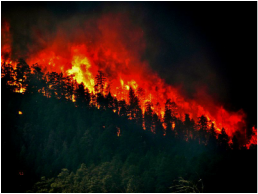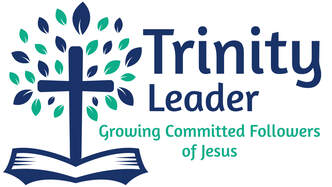 By now, you’ve likely seen the Tweet pronouncing the wildfire which decimated a large portion of Fort McMurray as a Karmic #ClimateChange Fire. The reasoning is as follows: the oil sands cause pollution in a vastly disproportionate way (which evidence shows is false) therefore nature and/or God is getting back at the oil sands for the damage caused the planet. Is this a case of what goes around, comes around? Is that even a Christian way of thinking? In another way, whenever a natural disaster afflicts a particular region, there are always some who are quick to pronounce the tragic event as God’s wrath or judgment being poured out upon an unrepentant people. Certainly, God has worked through cataclysmic events throughout history as a way of calling His people back to Himself. Many take issue with this premise because it does not seem to be consistent with how God is revealed in the New Testament; we’ve so fully embraced a God of unconditional acceptance and tolerance that we forget that God is holy and desires holiness from His people. Part of God’s character (which must remain unchanging while His actions can change as He chooses to deal with issues in different ways) involves wrath, not in a hateful or vengeful way but as a means of preserving His holiness. Christians love Jesus because He took upon Himself all of God’s wrath toward us as He satisfied the sentence of death placed on our lives because of sin. Is God’s wrath the context we as Christians ought to use to reflect on the current situation in Fort McMurray? I will be the first to admit that there are no easy answers when trying to reconcile why bad things happen. And I am fully aware that any answer given may perpetuate hurt or cause offense when heard in the midst of grief and despair; I am trying to avoid this while helping us to see God in the midst of the devastation. With that disclaimer, I offer a few reflections on the wildfire in Fort McMurray (which is also applicable to any other event which causes us to stop and wonder, ‘why?’. First, we need to be clear about what this disaster isn’t
Photo Public Domain Author: U.S. Department of Agriculture; Source: Flickr: 20120620-FS-UNK- 0009
0 Comments
|
AuthorPastor J-M shares some occasional thoughts and musings on our life together as followers of Christ. The views are his own. Archives
October 2023
Categories
All
|
- Home
- About
-
Learning & Growing
-
Sermons
>
- 1 Samuel
- Lent
- Spiritual Conversation
- Advent
- 1 Timothy
- Single Messages
-
Older Sermons
>
- Judges
- Joshua
- Galatians
- Lamentations
- 1 Peter: Living Hope
- Acts
- What Does This Mean?
- Gospel Identity: Gospel Living
- Nehemiah
- Questions of Faith
- Proverbs
- Hebrews
- Sermon on the Mount
- 1 Thessalonians
- Psalm 23: Walking with the Lord
- I Believe: The Apostles' Creed and a Living Faith
- 1 Corinthians
- Difficult Questions
- Genesis: God's Endless Faithfulness
- The Lord's Prayer
- Mark
- Genesis
- Bible Studies >
- Kids
- Blog
-
Sermons
>
- Worship Videos & Resources
- Contact
- Home
- About
-
Learning & Growing
-
Sermons
>
- 1 Samuel
- Lent
- Spiritual Conversation
- Advent
- 1 Timothy
- Single Messages
-
Older Sermons
>
- Judges
- Joshua
- Galatians
- Lamentations
- 1 Peter: Living Hope
- Acts
- What Does This Mean?
- Gospel Identity: Gospel Living
- Nehemiah
- Questions of Faith
- Proverbs
- Hebrews
- Sermon on the Mount
- 1 Thessalonians
- Psalm 23: Walking with the Lord
- I Believe: The Apostles' Creed and a Living Faith
- 1 Corinthians
- Difficult Questions
- Genesis: God's Endless Faithfulness
- The Lord's Prayer
- Mark
- Genesis
- Bible Studies >
- Kids
- Blog
-
Sermons
>
- Worship Videos & Resources
- Contact

 RSS Feed
RSS Feed